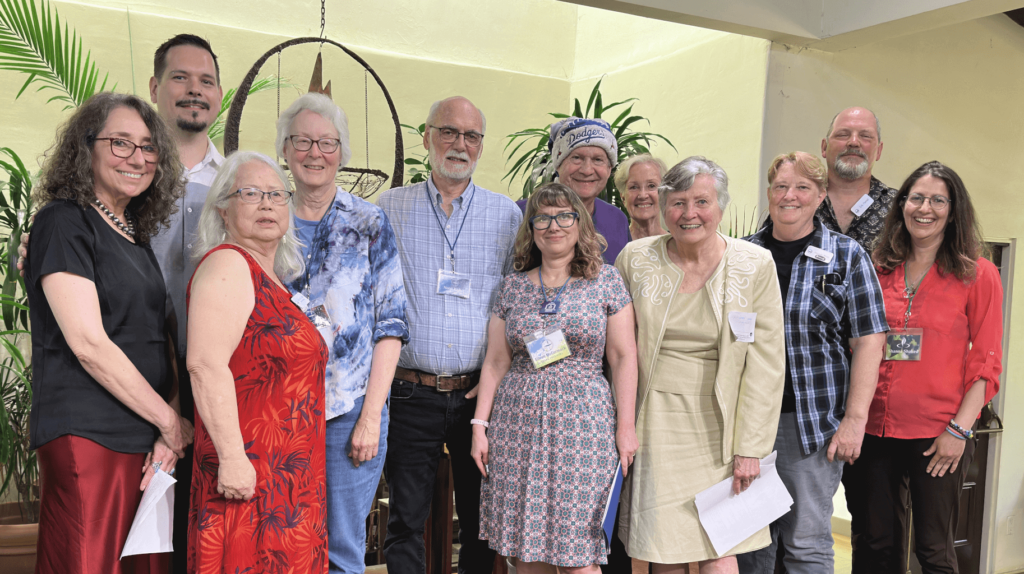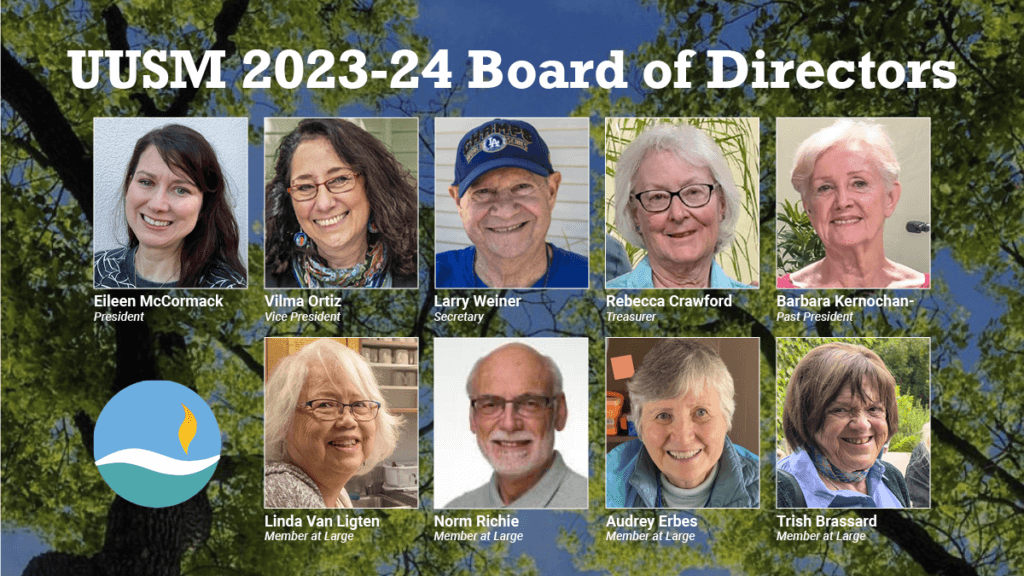After conducting two Budget Overview sessions on Zoom, the Board realized that many still likely have questions about the church’s finances, especially around the budget for the upcoming church year. Folks who attended came away better informed and seemed to appreciate the update.
Overall, our situation is improving. First, our expenses are stable and predictable. Second, though we have not fully recouped income lost during the pandemic, we just concluded a highly successful stewardship campaign where church members committed to giving more. The bottom line is that we are moving toward strong financial health. In other words, we’re seeing Emerging Abundance.
Overall financial strategy
Our strategy for managing recent and significant financial challenges is to engage in a multi-year process of gradual organizational change. We know from past experience, as well as the experiences of other churches, that quick and deep financial cuts during crises can destabilize congregational life. The organizational strategies we are undertaking include invigorated stewardship and renewed fundraising, as well as 1. careful monitoring of expenses, 2. leaning into emergency reserves, and 3. allowing time to rebuild income streams. By planning organizational change over several years, we strive to maintain stability.
Church budget
Each year, we develop a budget: a plan of expected expenses and income for the following year. We vote on the budget at our Annual Meeting, on June 18 this year. Our expenses are usually predictable in that they are primarily staff: minister, musicians, leadership for children/youth programs, and office support. Income sources include pledges, other donations from church members, and fundraising events. Prior to the pandemic, rentals were a significant source of income.
Addressing deficits
For the past 15 years, our income has been less than our expenses, resulting in deficits of about $30,000 each year. Some of the reasons for ongoing deficits are the initial shock of the 2008–09 recession, a period of changes in church leadership (five ministers in 15 years), and declining membership. While both income and expenses declined over this period, expenses decreased at a slower rate, resulting in deficits.
We are fortunate to have savings to cover these deficits. However, we recognize that continuing to draw on our savings to cover deficits is not sustainable. Therefore, a primary goal of the developmental work that we began in 2017 was to align our income and expenses to end deficit budgets. The initial deficit-reduction plan included intensive fundraising and continued assessment of expenses. These plans were interrupted by the departure of our first developmental minister and the pandemic.
Church finances and the pandemic
COVID-19 interrupted our financial plans. With the closure of our campus and facilities, several income sources all but disappeared. We lost almost all our rental income when community groups stopped meeting in our space. Second, we were unable to conduct our most successful fundraiser, Dining for Dollars, which relies primarily on in-person contact and camaraderie.
Fortunately, we made up for these income losses with pandemic-related support, largely from government sources (Payroll Protection Program, Employment Tax Credit). This meant that deficits for the pandemic years continued at a steady level of approximately $30,000 a year.
As we come out of the pandemic, income losses in rentals and fundraising have not returned to pre-pandemic levels, even though both rentals and fundraising have increased from their lowest pandemic levels. Future rentals are hard to predict, as it’s difficult to gauge whether community groups will return to in-person meetings. We rejoice that Dining for Dollars and other fundraisers are coming back—a shift toward using more technology has helped—although it has not yet returned to pre-pandemic levels.
2023-24 income
To compensate for the anticipated lower income next year, we embarked on an ambitious Stewardship Campaign this spring. This campaign involved engaging every church member about their relationship to the church and sharing stories about our success in continuing as a community during the pandemic challenges. Last, we asked every member to reflect on their dedication to the church community, reassess their financial commitment, and complete a pledge form.
This stewardship model was tremendously successful! Church members increased their pledges by approximately $60,000. Additionally, members committed one-time donations to the Emergence Fund of $20,000. Finally, we’ve applied for a grant from the Spirit Level Foundation to help support our invigorated Children and Youth Religious Exploration programming.
2023–24 expenses
Generally, our expenses are stable and predictable. One change for expenses next year is that we will employ a halftime (20 hours a week) Director of Children/Youth Programs. During the pandemic, our prior Religious Exploration program dwindled, and we did not know what our Religious Exploration program would look like as we returned to in-person meetings. Fortunately, many families with children, including many new families, are attending worship. Approximately 25 children/youth participate in our programs.
A Director of Children/Youth Programs will be responsible for the religious education provided to children and youth, as well as lead us toward family-centered, multigenerational ministry. In addition, our budget includes support for our minister and Sunday worship.
We are fortunate to have a rich music program that was absolutely critical to our virtual worship during the pandemic. It includes a Director of Music, who oversees a weekly program, an Accompanist, and four Section Leaders. The cost of the music program is offset by a grant from the Fletcher Foundation and fundraisers offered by the music program.
Our beloved community is blessed to have many generous members. We are optimistic as we look toward the future as we move toward strong financial health. We appreciate all of our gifts, and your continuing support, as we practice Emerging Abundance.






